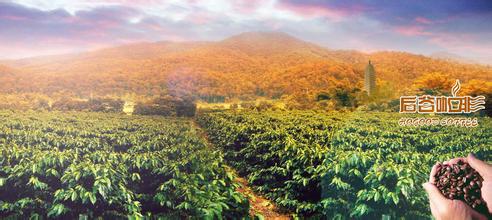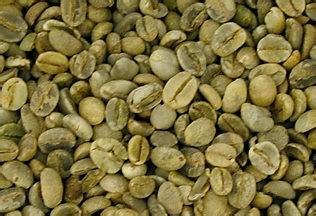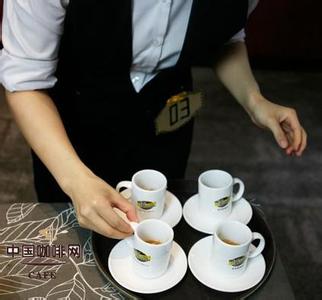Introduction to the characteristics of variety treatment manor in Uganda coffee bean flavor description grinding scale production area
Uganda Coffee Bean Flavor Description Grinding Scale Production Area Variety Treatment Manor Features Introduction
People drink fresher coffee beans. But people accustomed to old beans are not used to this fresh taste, so they desperately pursue old Java coffee, so that the Indonesian government and some businessmen deliberately store fresh beans in warehouses for one to two years before selling them to consumers. In fact, the acidity of aged Java beans is reduced to nearly zero compared to fresh beans, while the aroma is more intense. Because of the long storage time, the cost increases a lot, and the quantity is limited, so aged Java has always been a hot commodity in the coffee market. In the 1880s, some traders deliberately tampered with fresh Guatemala or Venezuela beans to copy old Java and sell them at high prices. What is intolerable is that 0 traders dye coffee beans in a way that makes them look more like aged java, but there is no doubt that the dyeing chemicals are poisonous.
Comparison: A unique African coffee, very similar to Indonesian coffee
Ugandan coffee beans have a unique flavor and fragrance, which is very suitable for making Italian and other flavors of coffee. More importantly, Ugandan coffee beans are strictly screened according to international market standards to ensure their high quality and pollution-free characteristics.
Africa is home to Arabica and Robusta, two major coffee varieties, while Uganda, located in eastern Africa and known as the "highland water" and "pearl of East Africa," is believed by many to be the birthplace of Robusta.
Uganda is mostly located in the Central African Plateau, with many lakes, with an average altitude of 1000-1200 meters. There are many intermountain lakes and plateaus, known as "plateau water town". The western branch of the Great Rift Valley runs through the western border, and there are many rivers and lakes at the bottom of the valley. Uganda has a Victoria Lake, coupled with many mountains in the territory, making Uganda, although across the equator, but mild climate, suitable for coffee cultivation.
Uganda is the birthplace of Africa's Robusta, just as Ethiopia is the birthplace of Arabica coffee, Robusta coffee was first discovered in Uganda. Uganda has been growing coffee for over 100 years. It is the second largest producer in Africa after Ethiopia. Uganda is also one of the few major African countries committed to organic coffee production.
Mbale in Mount Elgon on the east and other production areas near the border with the Democratic Republic of the Congo on the west take Wugar as the export name. Officially listed grades are Oaganic (organic), BugisuAA, BugisuA, BugisuB, Bugisu PB, Wugar, Drugar and others not listed. To find Ugandan coffee with excellent performance, we must first identify Bugisu AA, A and PB grades. However, due to the country's inland location and many transportation problems, we often find green beans with low moisture content and not green appearance. However, Ugandan coffee is not a coffee type that emphasizes rising aroma. As long as the green beans are not turned hundred or yellow, they can generally have good flavor performance in the producing area. They have a low ripe fruit aroma, such as red wine taste, and a thick body. It is similar to some low-toned Kenyan beans, but it also has a mild earthy taste, so it is quite different from other East African countries in flavor characteristics, but it is somewhat similar to Asian Indonesian Sulawesi Tonaga coffee and Java country manor coffee. Baking degrees from City+ to Full City+ are all better

Important Notice :
前街咖啡 FrontStreet Coffee has moved to new addredd:
FrontStreet Coffee Address: 315,Donghua East Road,GuangZhou
Tel:020 38364473
- Prev

Introduction to the description of the flavor of Kenyan coffee beans by variety treatment method in brand producing areas
Description of the flavor of Kenyan coffee beans produced by the brand variety treatment method A coffee bean may have a special place name, or a method of treatment (washed or unwashed), a title, or just a letter or number after it. In some countries where the coffee industry is nationalised, the grading system seems uninteresting. In Kenya, for example, a bag of coffee might be:
- Next

Flavor description of Brazilian Hartmann washed Rosa Coffee beans introduction to the production area of Grinding Calibration method
Flavor description of Brazilian Hartmann washed Rosa Coffee beans the story of Hartman, like its coffee, is as legendary as the grinding scale. Hartman Manor is located in Chilidge, Santa Clara. The founder's name is Ellis Strauss Hartman. He was born on June 20, 1891 in the Moravilla region of Austria and Hungary, now the Czech Communist Party.
Related
- Detailed explanation of Jadeite planting Land in Panamanian Jadeite Manor introduction to the grading system of Jadeite competitive bidding, Red bid, Green bid and Rose Summer
- Story of Coffee planting in Brenka region of Costa Rica Stonehenge Manor anaerobic heavy honey treatment of flavor mouth
- What's on the barrel of Blue Mountain Coffee beans?
- Can American coffee also pull flowers? How to use hot American style to pull out a good-looking pattern?
- Can you make a cold extract with coffee beans? What is the right proportion for cold-extracted coffee formula?
- Indonesian PWN Gold Mandrine Coffee Origin Features Flavor How to Chong? Mandolin coffee is American.
- A brief introduction to the flavor characteristics of Brazilian yellow bourbon coffee beans
- What is the effect of different water quality on the flavor of cold-extracted coffee? What kind of water is best for brewing coffee?
- Why do you think of Rose Summer whenever you mention Panamanian coffee?
- Introduction to the characteristics of authentic blue mountain coffee bean producing areas? What is the CIB Coffee Authority in Jamaica?

